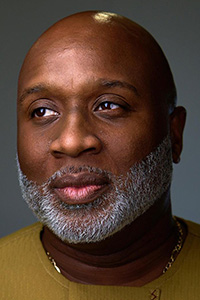
Diversity, equity, and inclusion — DEI — has become a highly politicized topic, resulting in anti-DEI legislation and cutting back or removing DEI initiatives.
Last June, after the U.S. Supreme Court banned the use of race-based affirmative action in college admissions, it set off “an explosion of anti-DEI bills and extinguished DEI [diversity, equity, and inclusion] initiatives,” said Jolene Jang, a Seattle-based Asian inclusivity consultant. The backlash “is everywhere,” said Jang, who moderated a July 28 webinar, “The State of DEI: Is It Dying or Is It Evolving?” organized by the PCMA Capital Chapter.

Jolene Jang
Jang recited a long list of companies that have made changes to DEI programs, ranging from Facebook, Google, and Zoom, to the 86-year-old Tennessee-based Tractor Supply Company. Investment in DEI also is waning: In 2022, one-third of corporations made investments in personnel and strategies related to DEI, a number, Jang reported, that Forrester Research predicted would drop to 20 percent in 2024.
In the association world, the Society of Human Resource Management (SHRM), made headlines earlier this year when it announced that it would drop the word “equity” from its diversity and inclusion program. On its website, SHRM quoted research that showed that 53 percent of those surveyed linked DEI to business polarization.
During the 90-minute webinar, Jang, panelists, and webinar participants wrestled with questions about what changes would mean for events and destinations in the U.S., where DEI has become highly politicized. At midsummer, Jang said, state legislators had introduced 85 bills across 28 states that would limit or eliminate DEI initiatives in state governments and schools.
Considering the Impact
Anti-DEI legislation has restricted some of her clients who work for state tourism offices from using language associated with DEI, said panelist Melissa Cherry, chief diversity and inclusion officer at Miles Partnership, where she leads the tourism and travel marketing firm’s DEI consulting practice. Cherry recently put together a business case demonstrating DEI’s value for a client who was being challenged by its governing council, she said. “That’s always interesting to me,” Cherry said, “because there’s no data that actually says DEI negatively impacts the work.”

Melissa Cherry
Cherry also shared the results of a survey conducted by Miles Partnership with Future Partners, which showed that slightly more than half of planners said that divisive state and local laws have caused them to reconsider destinations for their meetings. Survey results showed that 45 percent would reconsider meeting destinations because of concerns over racial equality and 44 percent would reconsider destinations over concerns about gender equality. (See “The Continuing Business Case for DEI” below.)
Jason Dunn, the executive director of the 41-year-old National Coalition of Black Meeting Professionals (NCBMP), said he sees the backlash against DEI affecting both destination and association members. Cities, including those that are “an island of blue” in otherwise red conservative states, stand to miss out on conventions that will avoid destinations based on political issues, Dunn said. And many of NCBMP’s members have seen their budgets slashed, he said, because of how our markets are pigeonholed. “I think diversity is, in some minds, exclusively Black, which is not the case at all.”
Many people perceive DEI as a Black and transgender issue, because they’re the ones who are targeted a lot of the time, Jang said. “I think it’s important to understand that this impacts a lot of people — it’s also the entire LGBTQIA community,” she added, as well as the Black, Latinx, Hispanic, Asian-American, Native Hawaiian, Pacific Islander communities, people with disabilities, and women.
What’s in a Name?
Cherry suggested that a debate around language — calling an initiative “DEI” as opposed to “diversity and inclusion,” or “DEIAB” for diversity, equity, inclusion, and belonging — could distract from the actual work of creating more diverse organizations. “When we get caught up … in all of these different acronyms, we’re losing sight,” she said, “that this is really about understanding what that work looks like and then being accountable for and actually completing that work.”

Jason Dunn
“If you can do the work, you can do the work regardless of what you call it,” Dunn agreed, “as long as there are metrics that move the needle.” But removing the word “equity” concerned him, he added. Dunn, who was the first Black vice president at Visit Cincinnati, remembers a time when Black business event executives held C-suite titles but had no budgets and no real power to create change, he said.
He also understands, he said, the dilemma faced by DMOs in states where just using the words “diversity, equity, and inclusion,” cause conflict. “I would hope that as we have these discussions that people are not scared to talk about the elephant in the room, which is race and ethnicity,” Dunn said, “and the staggering inequalities of resources and hiring levels. I would just ask the industry to take a deep breath. And then let’s determine who we want to be and how we want to show up. I think that’s the thing that will make our industry that much more relevant in the long term.”
The Continuing Business Case for DEI
On a website page describing its diversity and inclusion commitments, the Society of Human Resource Management (SHRM) includes survey results that show that nearly seven out of 10 working Americans said the results of corporate diversity programs were “mixed at best.” Ten percent of survey respondents said that such programs have actually done more harm than good.
The consulting firm McKinsey & Company paints a very different picture in its December 2023 report, “Diversity Matters Even More: The Case for Holistic Impact,” which analyzed the relationship between leadership diversity and company performance across 23 countries and six global regions. “The business case,” the report said, “is the strongest it has been since we’ve been tracking diversity” (since 2015). The report drew on a dataset that spanned 1,265 companies, as well as company interviews.
Among the report’s findings:
- There is a 39-percent increased likelihood of financial outperformance for those companies in the top quartile of ethnic representation on their executive team vs. companies in the bottom quartile.
- The business case for gender diversity on executive teams has more than doubled over the past decade. Since 2015, the likelihood that companies where the executive team was in the top quartile for gender diversity would outperform those in the bottom quartile grew from 15 percent to 39 percent.
- Across all industries surveyed, more diversity in boards and executive teams is correlated to higher positive impact on communities, workforces, and the environment.
Barbara Palmer is deputy editor of Convene.
Moving DEI Efforts Forward
At the end of the webinar on DEI, moderator Jolene Jang asked the panelists what organizations and individuals can do right now to move DEI efforts forward. Here’s what they had to say:

Courtney Moore
Courtney Moore, chief of staff to CHRO, Southwest Gas Corporation, emphasized that DEI should not be seen as separate from business objectives but as a key driver of business success. He recommends DEI practitioners “become immersed in what the business goals are and what the direction of the company is.” To be effective, Moore said, DEI must be integrated into the business.
Jason Dunn, CEO of the National Coalition of Black Meeting Professionals, said it is crucial for organizations, associations, and individuals to gather and analyze data to understand the impact of their actions. Data, which can show economic impact, job creation, and influence on policies, can be used to advocate for resources, support, and policies that align with your goals. Finally, he said, come to the table prepared with data that supports your value and objectives, ensuring you have control over how you are perceived and treated: “Know your power, your value, your walk, and your worth.”
Melissa Cherry, chief diversity & inclusion officer, SVP, at Miles Partnership, stressed the importance of good communication about DEI efforts. It is imperative to assess the effectiveness of the work and then develop a narrative to communicate not only the progress you’ve made, but the process used to get there, “so people tangibly understand and that there’s a consistent narrative around it,” she said.
— Curt Wagner
